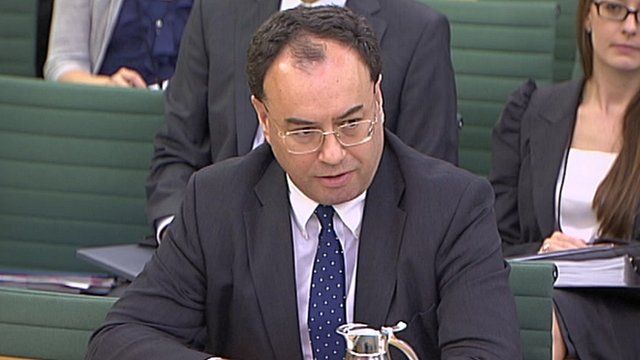‘Why is it that every time there is a crisis, rich men ask ordinary people to pay for it?’

Andrew Bailey’s calls for people to show ‘restraint’ on wage rises, as he admits the cost-of-living crisis could last until 2024, has been blasted by unions and company bosses.
Speaking to the Today Programme, the Bank of England’s governor says the Bank wants to see “quite clear restraint” in the wage bargaining process.
BoE rises interest rates
The comments come as the Bank of England (BoE) rises interest rates for the second time in three months, to 0.5%. The decision was made due to fears that soaring energy bills will push inflation to more than 7% by April, a higher rate than expected.
According to Bailey, who earns a £510,00-plus annual salary with bonuses, says controlling wage increases is key to keeping a grip on inflation. A ‘moderation of wage rises’ will prevent inflation becoming ingrained, says the BoE governor.
“We are looking to see quite clear restraint in the bargaining process. Otherwise, it will get out of control.
“It’s not at the moment but it will do,” he said.
Admitting that the Bank’s concern is the size of the increases, Bailey said he is not saying don’t give staff a pay rise.
Wages remain stagnant
Despite inflation hitting a 30-year high in December, wages have remained stagnant, putting intense pressure on people’s finances.
Data, released on February 1, shows that two-thirds of adults in Britain have reported their household budgets have been squeezed in recent weeks because of soaring costs.
In November 2021, average wages – after taking account of inflation – dropped for the first time since July 2020. According to the Office for National Statistics, although average earnings increased at an annual rate of 3.5% in November. However, due to surging rates of inflation, this meant workers suffered a real terms pay cut.
Andrew Bailey’s comments about maintaining “restraint” with pay rises, have been blasted by trade unions.
Sharon Graham, general secretary of Unite, described the BoE’s calls as making workers pay the price. Pointing out that Bailey is in fact calling for a national pay cut, Graham said:
“Yet again workers are being asked to pay the price, this time for inflation and the energy crisis. Inflation has not been caused by workers. Why should they be expected to pay for the failures of the energy market and the total shambles of government policy?
“Workers don’t need lectures from the governor of the Bank of England on exercising pay restraint. Why is it that every time there is a crisis, rich men ask ordinary people to pay for it?
“Enough is enough, we will be demanding that employers who can pay, do pay. Let’s be clear, pay restraint is nothing more than a call for a national pay cut.”
Kate Bell, head of economics at the TUC, also hit out at the comments, saying inflation is being driven by increasing energy prices, not through pay demands.
“Working people need a pay rise now. And the best way to get one is to join a union,” said Bell.
While Gary Smith, general secretary of the GBM trade union, described Bailey’s comments as a “sick joke.”
As well as drawing an icy response from trade unions, company bosses have hit out at Bailey’s comments.
Tesco boss expresses objection
On Sunday February 6, Tesco chairman John Allan, said staff at the supermarket deserve to be protected from inflation and it was wrong for the governor of the Bank of England to tell workers to restrain their demands for wage rises.
When asked about Bailey’s comment, John Allan told BBC TV: “Our 300,000 colleagues … deserve to be protected from inflation.
“So I think that’s the wrong direction for people to go in.”
Downing Street has stressed that Boris Johnson fiercely disagreed with Bailey’s calls for workers to show “restraint” over pay rises amid high inflation.
A spokesman for the PM said: “It’s not something that the prime minister is calling for. We obviously want a high-growth economy and we want people’s wages to increase.”
“We recognise the challenge of the economic picture which Andrew Bailey set out but it’s not up for the government to set wages or advise the strategic direction or management of private companies.”
Gabrielle Pickard-Whitehead is a contributing editor to Left Foot Forward
To reach hundreds of thousands of new readers we need to grow our donor base substantially.
That's why in 2024, we are seeking to generate 150 additional regular donors to support Left Foot Forward's work.
We still need another 117 people to donate to hit the target. You can help. Donate today.



